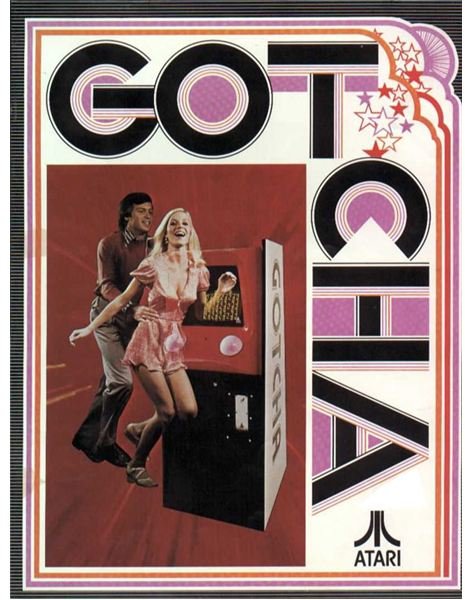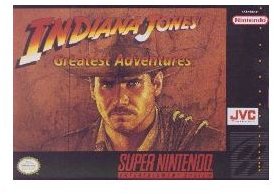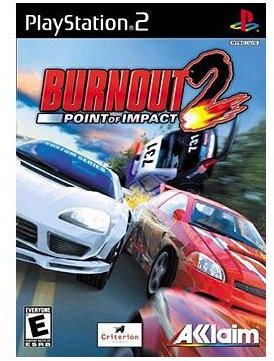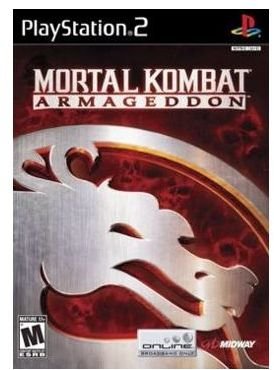This Day in Video Game History: October 11

This Day in Video Game History
1973
Atari released its first game, the Gotcha maze game, to U.S. arcades. The game is the first maze game in history as well as the first controversial game in history. In the game, two players must race to be the first out of the maze. The controversy surrounding the game comes not from its content but from its controls. After one Atari developer had commented on the phallic nature of the joystick, others jokingly decided to make a “female” game cabinet, and Gotcha was the result. Rather than joysticks, the machine featured two pink rubber controllers vaguely resembling breasts that players had to squeeze and shift to advance their character. The pink rubber only covered a set of traditional joysticks, but while playing the game, the setup made it appear as it a gamer was fondling a pair of breasts while playing the game. Further aggravating the issue was Atari promotional material for the game, which featured a man gripping a woman’s waist from behind despite the fact that Atari’s target market was largely composed of children. The game elicited outrage in a number of communities, and as the first controversy of its kind, the issue became the center of a media bananza. The game failed to achieve any great popularity and was relegated to obscurity when the Pac-Man maze game was released almost seven years to the day later.
1988
Commodore-Amiga received a patent for its Amiga video game and personal computer system. (US No. 4,777,621)
1994

JVC released the single-player Indiana Jones’ Greatest Adventures platform game for the Super Nintendo Entertainment System (SNES) in North America. The game, though contained on a 16-megabit cartridge, featured cut-scenes that followed the films faithfully.
1998
ICWHEN.COM created the Eye Site Award to recognize websites that support or promote classic arcade and computer gaming. The first site to receive the award will be AtariHQ.com.
1999
Activision released the Intellivision Classics game compilation for the PlayStation in North America. (ESRB: E)
Namco introduced a new advertising campaign featuring Mr. T and Verne Troyer.
Rare released the Jet Force Gemini third-person shooter for the Nintendo 64 in North America. The game is notable for allowing players to cooperatively work through story mode simultaneously. While the gameplay is not unique to the game, the rare feature invites comparisons to other such cooperative games as GoldenEye 007 and Perfect Dark. (ESRB: T)
2000
Sony Computer Entertainment of America released the single-player Spyro: Year of the Dragon platform game for the PlayStation in North America. (ESRB: E)
2002

Acclaim released the Burnout 2: Point of Impact racing game for the PlayStation 2 in Europe. To promote the game, Acclaim publicly offered to pay English drivers’ speeding tickets on the day of the game’s release. (ELSPA: 11+)
Atari released the Godzilla: Destroy All Monsters Melee fighting game for the GameCube in the U.S. (ESRB: T)
Fresh Games released the Legaia 2: Duel Saga roleplaying game for the PlayStation 2 in Europe. (ELSPA: 11+)
Konami released the single-player Castlevania: Harmony of Dissonance for the Game Boy Advance in Europe. (PEGI: 12+)
2004
2015 Inc. announced that its first-person shooter Men of Valor has gone gold.
THQ released the Tak 2: The Staff of Dreams third-person action game for the Game Boy Advance, GameCube, PlayStation 2 and Xbox. (ESRB: E)
2005
2K Games released the Serious Sam II first-person shooting game for personal computer and the Xbox in the U.S. The game is the fourteenth game in the series. (ESRB: M)
2006

Atari’s original Dig Dug arcade game is released on the Xbox Live Arcade.
Midway released the Mortal Kombat: Armageddon fighting game for the PlayStation 2 in the U.S. (ESRB: M)
Reuters news agency reports that all thirty-six hundred EB Games and GameStop stores had sold out all of the PlayStation 3 video game consoles available for pre-order inside the first day of taking pre-orders.
2007
Game developer Electronic Arts announced plans to acquire VG Holding Corp, the parent company of Bioware and Pandemic Studios. When the acquisition is complete in January 2008, Bioware and Pandemic Studios had ten franchises under development, including the highly anticipated Maff Effect.
Sega announced that Virtua Fighter 5 for the Xbox 360 had gone gold.
